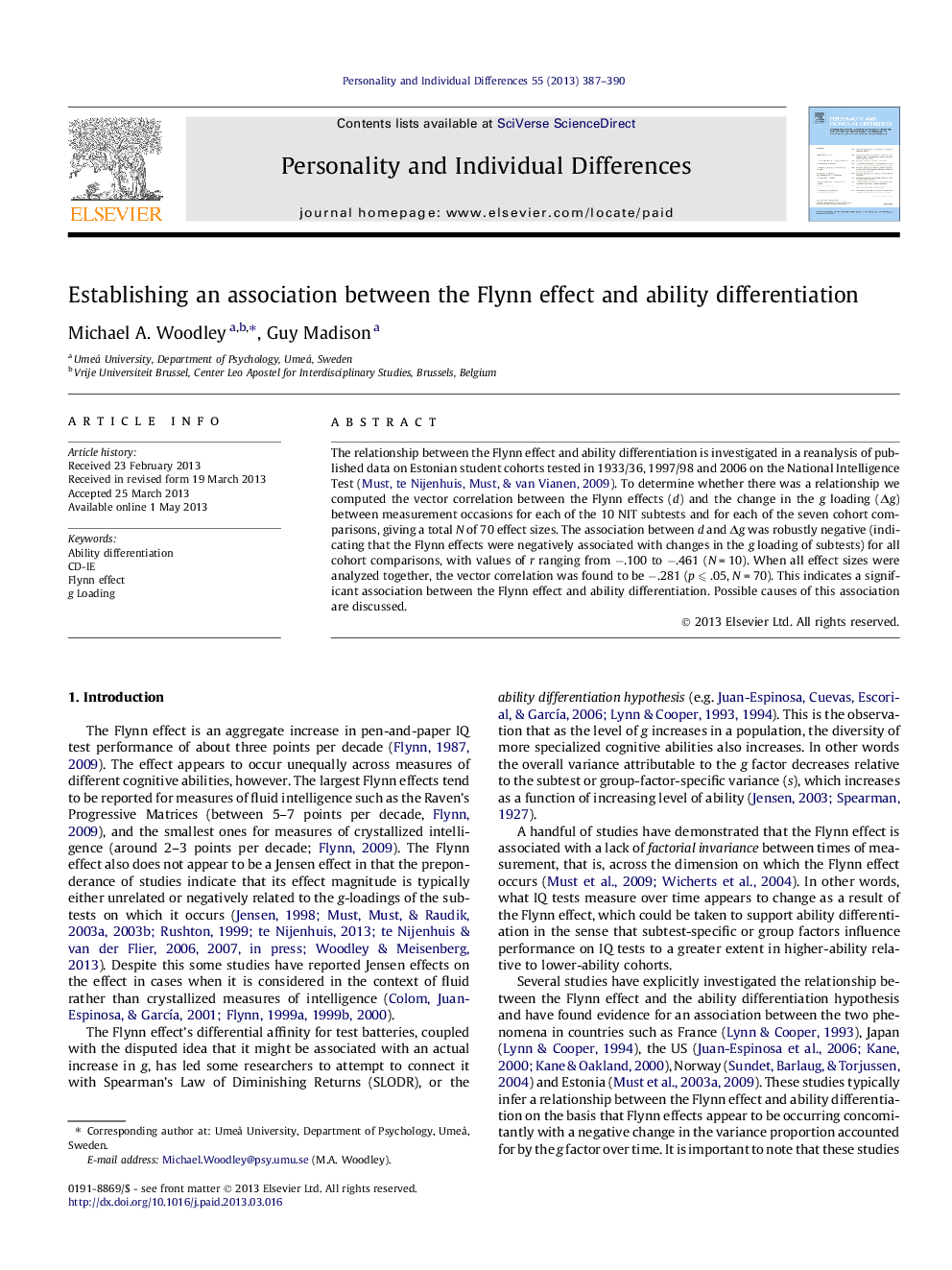| Article ID | Journal | Published Year | Pages | File Type |
|---|---|---|---|---|
| 891158 | Personality and Individual Differences | 2013 | 4 Pages |
•The association between the Flynn effect and ability differentiation is tested.•We re-examine published data on Estonian Flynn effects encompassing 70 effect sizes.•The Δg/d vector correlation was negative in all seven cohort-pair comparisons.•The association was significantly negative across all 70 effect sizes at −.281.•Ability differentiation and the Flynn effect are robustly associated.
The relationship between the Flynn effect and ability differentiation is investigated in a reanalysis of published data on Estonian student cohorts tested in 1933/36, 1997/98 and 2006 on the National Intelligence Test (Must, te Nijenhuis, Must, & van Vianen, 2009). To determine whether there was a relationship we computed the vector correlation between the Flynn effects (d) and the change in the g loading (Δg) between measurement occasions for each of the 10 NIT subtests and for each of the seven cohort comparisons, giving a total N of 70 effect sizes. The association between d and Δg was robustly negative (indicating that the Flynn effects were negatively associated with changes in the g loading of subtests) for all cohort comparisons, with values of r ranging from −.100 to −.461 (N = 10). When all effect sizes were analyzed together, the vector correlation was found to be −.281 (p ⩽ .05, N = 70). This indicates a significant association between the Flynn effect and ability differentiation. Possible causes of this association are discussed.
